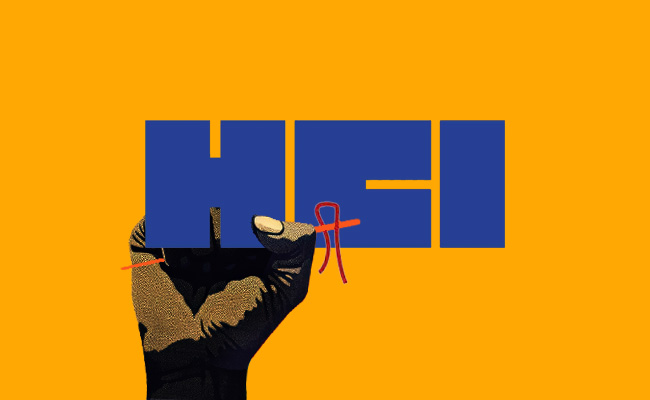Car trading group WeBuyCars slammed into reverse this week, its share price skidding 14.8% after a surprise profit warning spooked investors and wiped R3.3bn off its market value.
It was the first speed wobble for the used car dealer, which has otherwise enjoyed a stellar run since it debuted on the JSE in April last year, after being spun out of Transaction Capital. Since then, it’s stock is up 125%, reflecting a belief that in a struggling economy, second-hand car sales will continue to soar.
And then Tuesday happened. WeBuyCars said it expects core headline earnings for the year to September to rise between 12% and 17% to R958m — which sounded solid, but investors were hoping for something far punchier from the fast-growing brand. Earnings per share will rise by just 0.8% to 6%, as it has issued more stock.
Faan van der Walt, who founded the business in 2001 and remains an executive, admitted the reaction caught him off guard.
“Today was indeed an interesting one,” he told Radio 702. “Our shareholders have very high expectations, and I guess this was a reaction to that. From our side, we feel our first half was fantastic, but the second half was somewhat subdued and softer.”
Van der Walt said this reflected the fact that banks weren’t as free with granting credit, as vehicle finance approval rates slipped to 41% from 46% at the start of the year.
“There is definitely a slowdown in lending activity and credit approvals,” he said. “Consumers are under pressure, and that’s showing in their ability to secure financing for vehicles.”
This U-turn underscores how quickly investor optimism can sour when growth slows.
While its listing last year was hailed as a breath of fresh air for a diminishing JSE, symbolising local entrepreneurship and consumer tech innovation, the sell-off suggests the market is recalibrating its expectations.
WeBuyCars’ stock is trading on a price-to-earnings ratio of 19, which is relatively expensive compared to rivals like Combined Motor Holdings (CMH) which trades on a P:E of 8. But this reflects the growth expectations of the stock.
Ironically, CMH — which has dealerships across the country representing brands including Honda, Haval, Cherry, Mazda and Peugeot — released results for the six months to August this month, showing a 22.7% growth in profit to R164.5m.
But David Shapiro, the chief global equity strategist at Sasfin, believes investors have been too harsh on WeBuyCars. “Technically, they’re way ahead of everyone else in the way they run their business,” he says, adding that the market’s brutal reaction does not reflect its strong fundamentals.
Unlike Motus and CMH, whose core focus remains traditional dealerships, Shapiro says WeBuyCars operates with a leaner, technology-driven model that allows it to dominate trade-in volumes and move cars faster.
“Their service is exceptional – you sell a car, they’re at your door within minutes with the cash in hand,” he says. In this sense, it’s a modern, consumer-focused operator that fits South Africa’s affordability-driven car market.
Viv Govender, a portfolio manager at Rand Swiss, agrees with Shapiro.
“Yes, the share price has fallen sharply, but it’s still up around 3.5% this year and 25% over the past twelve months. This is not a company in trouble,” he says.
Govender says WeBuyCars is still growing at double-digit rates. “The management’s quick move to address investors directly shows confidence. This was more about high expectations than weak performance,” he says.
The China Syndrome
Yet there is another factor putting pressure on South Africa’s used car dealers: a proliferation of cheaper Chinese vehicle on our roads, which are being bought new.
Govender describes this as a “real threat” to the second-hand car market. “Chinese brands are offering vehicles with strong warranties and similar features at roughly half the price of established models,” he says.
Van der Walt admits as much. “Someone who would have bought a second-hand car for R400 000 may now choose a brand-new Chinese car offering better value,” he says.
But he says that while this may hurt second-hand car sales in the short-term, “in the long run, this is positive because those vehicles will eventually enter the used market”.
The hype around WeBuysCars’ share price may also reflect the speed at which it has been building new visible car trading “supermarkets” across the country.
It is currently building two new mega warehouses in Gauteng and Cape Town, and recently launched a software platform called Inspectify, which simplifies vehicle inspections and helps customers understand condition reports in plain language.
Van der Walt says this is “all about improving transparency and trust”, in line with its ambitions, which he says will not be tempered by this result.
At last count, WeBuyCars was selling about 16,000 cars per month, giving it about a 10% share of the total used vehicle market. But the company is targeting monthly sales of 23,000 cars by 2028.
“Our market share remains small compared with the overall used vehicle market. There’s still enormous room for growth,” Van der Walt said.
Vehicles are still changing hands every three-and-a-half years in South Africa, he says, so his company’s story is “far from over”.
Van der Walt says this week’s speed bump is something that every fast-growing company faces at some point.
“Growth does moderate over time, that’s natural,” he said. “But we’re still ambitious. We believe the next phase of our growth depends entirely on how much effort we put in. We’re not done expanding.”
Top image: Rawpixel/ Currency collage
Sign up to Currency’s weekly newsletters to receive your own bulletin of weekday news and weekend treats. Register here.














